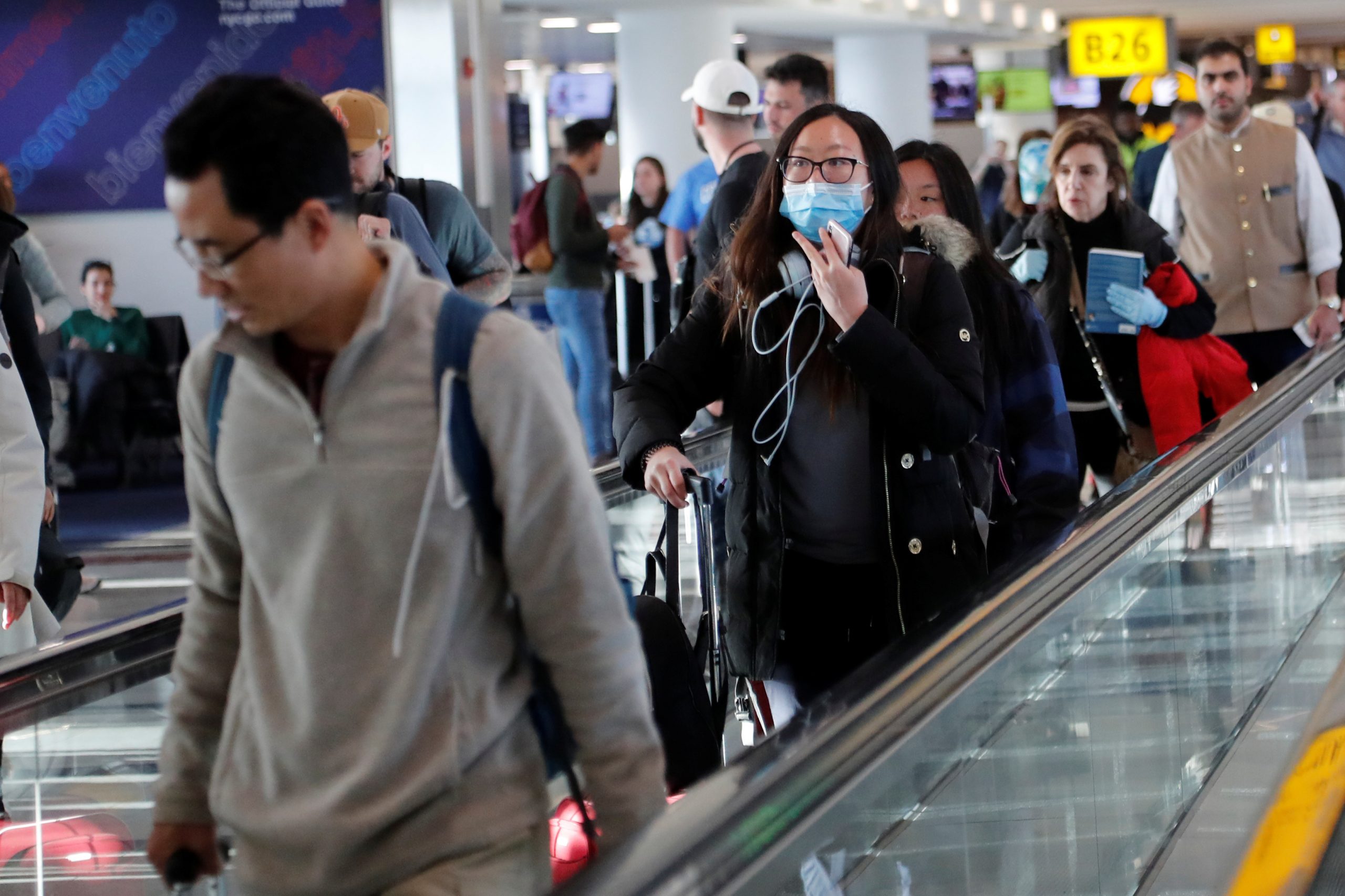Americans, especially those who are vulnerable, may need to stop attending big gatherings as the coronavirus spreads through U.S. communities, a top health official said on Sunday, adding that the possibility of large-scale quarantines cannot be ruled out.
Anthony Fauci, the head of the infectious diseases unit at the National Institutes of Health, said on NBC’s “Meet the Press” that after initial missteps distributing tests, there should be 400,000 more tests available by Monday and 4 million by the end of the week.
In the United States, 19 people have died out of about 450 reported cases of coronavirus, which originated in China last year and causes the sometimes deadly respiratory illness COVID-19. The outbreak has killed more than 3,600 globally.
More than half of the 50 U.S. states have reported cases. As the outbreak spreads, daily life has been increasingly disrupted, with concerts and conferences canceled and universities telling students to stay home and take classes online.
To contain the outbreak in China, the government quarantined millions of people for weeks. Italy has announced similar measures, locking down 16 million people in the north of the country.
As recently as Saturday, U.S. President Donald Trump said he would continue to hold his political rallies, which sometimes draw up to 20,000 people. The Democrats competing to challenge him in the Nov. 3 presidential election, U.S. Senator Bernie Sanders and former Vice President Joe Biden, have not canceled any campaign events so far.
Germany, which has nearly 1,000 cases, on Sunday urged the cancellation of all events with more than 1,000 people.
Asked about quarantines in China and Italy, Fauci said he could not rule out similar actions in the United States.
“You don’t want to alarm people, but given the spread we see, anything is possible, and that’s the reason why we’ve got to be prepared to take whatever action is appropriate to contain and mitigate the outbreak,” he said on “Fox News Sunday.”
He urged those most at risk from coronavirus to limit travel.
“If you’re a person with an underlying condition and you are particularly an elderly person with an underlying condition you need to think twice about getting on a plane, on a long trip, and not only think twice, just don’t get on a cruise ship,” Fauci said on “Meet the Press.”
U.S. Surgeon General Jerome Adams told CNN cases would rise, adding that the average age of death for people with the virus was 80, and the average age of those needing medical attention was 60.
“Unfortunately, you are going to see more deaths, but that doesn’t mean that we should panic,” he said. Communities need to “prepare for more cases so we can prevent more deaths,” Adams said.
The hardest hit place in the United States has been a nursing home in a suburb of Seattle and Washington state is considering mandatory measures such as banning large gatherings but not necessarily imposing massive quarantines, the governor said.
The cruise ship Grand Princess, barred from returning to San Francisco last week due to a coronavirus outbreak on board, is now headed for nearby Oakland with 3,500 people on board, possibly to be placed under quarantine.
U.S. Vice President Mike Pence, who is leading the government response to the health crisis, said on Friday that 21 crew members and passengers had tested positive for coronavirus on the ship, which had been linked with at least four cases from an earlier voyage.
New York Governor Andrew Cuomo said the number of cases in New York is now 105 and he expects that to rise as testing expands.
“What we are really trying to do here is avoid the massive disruption of closing everything down for two weeks the way China did, the way Italy is doing,” he said.
Cuomo said a lawyer from Westchester County who is believed to be at the center of the outbreak there had attended a number of large gatherings, contributing to the roughly 70 people in Westchester who have tested positive.
“It’s these large gatherings where you can expose a number of people in a very short period of time and then it’s like dominoes, right, then the tree continues to expand with branches.”
(Reporting by Susan Cornwell in Washington and Nathan Layne in New York; Additional reporting by Barbara Goldberg in New York; Writing by Lisa Shumaker; Editing by Tim Ahmann, Sonya Hepinstall and Daniel Wallis)

























 Continue with Google
Continue with Google